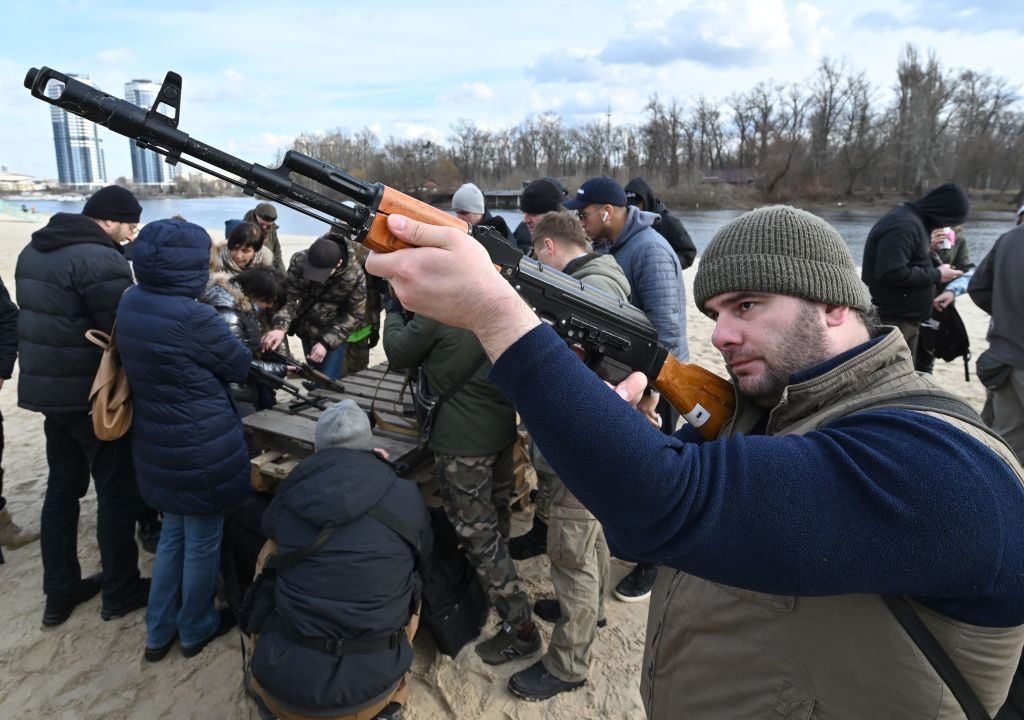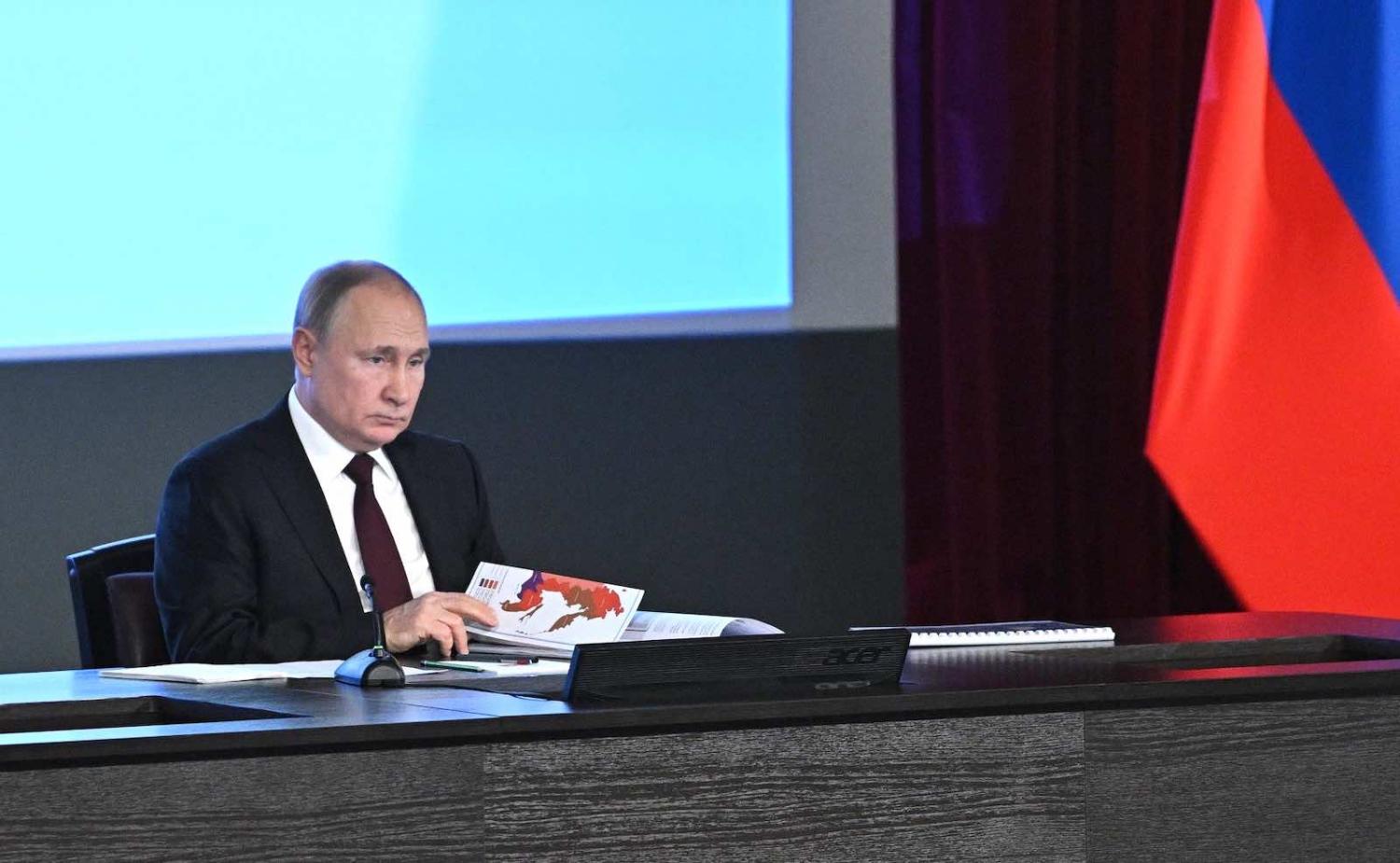Whatever steps Vladimir Putin takes over coming days will be deeply consequential for the security of both Russia and Europe.
What does Putin want?
Firstly, he wants to bring Ukraine back within Russia’s orbit. This is partly for emotional reasons of national identity and imperial nostalgia: Putin, like many Russians, doesn’t really accept Ukraine as a separate country and people, and resents its post-Soviet independence.
But more than this, Putin has a wider geopolitical goal. He wants to redraw Europe’s post-Cold War security architecture.
In particular, he wants to forestall and reverse NATO’s eastward expansion. And as a corollary, restore Russia’s sphere of influence around its western borders, to give it strategic depth.
It’s also about political insecurity. The Kremlin is fearful of open democracies flourishing on Russia’s doorstep (whether in Ukraine or Belarus), providing an unhelpful model for its domestic opponents and vectors of foreign influence.
The bigger context is Putin’s overriding aim to reassert Russia’s standing and influence globally as a great power, especially in its near neighbourhood, and rebuild Russia’s hard power – a strong Russian military – to support this ambition.
If this crisis is to be resolved peacefully, then, it’s going to require very difficult compromises on all sides – especially if Putin’s tactical successes to date blind him to the longer-term risks.
So far, coercive diplomacy seems to have worked for Putin. He’s got the West’s attention – in buckets. Russia’s security guarantee demands, accompanied by bellicose rhetoric and the menacing buildup of over 150,000 troops on Ukraine’s borders (and more in Belarus), have forced Western leaders to engage with Moscow on Russia’s terms.
By limiting gas supplies, Russia has reminded European leaders of the leverage it enjoys through Europe’s dependence on Russian energy.
And he’s taken steps to reaffirm and deepen relations with China, to ensure Beijing has Moscow’s back in any crisis with the West.
Tactically, then, the threat of force has proved effective for Putin, securing the negotiating high ground and the ability to dial up and down the pressure on Ukraine, and the West.
But if, as Western leaders are warning, Putin now decides actually to invade Ukraine, this could prove a strategic blunder, proving counter-productive longer-term for Russia. Far from drawing Ukraine closer to Russia, such intervention would alienate the Ukrainian people, and drive them closer to Europe. Russia’s invasion would be fiercely resisted by Ukrainians and inflame nationalist sentiment among the 43 million strong population.
Next, it would galvanise the cohesion and sense of common purpose within NATO, strengthening ties between the United States and its European allies. It would bring down far-reaching sanctions on Russia. This would badly damage the Russian economy, and worsen the livelihoods of ordinary Russians (with whom a war now with Ukraine is unlikely to play as well as the Crimea annexation did in 2014). And this would likely drive Russia into greater dependence on China.
Moreover, energy dependence works both ways. While Europe needs Russian gas, Russia also needs to sell it, and Europe is Moscow’s biggest customer. Cutting off gas supplies would ultimately be self-defeating for Russia.

How likely is an invasion?
Russia certainly has the capability yet Putin’s intentions remain unclear. It may all be bluff and deception: Russian sabre-rattling to destabilise Ukraine and extract concessions from the West. But it’s worrying Putin hasn’t yet accepted any of the diplomatic off-ramps offered him by Western leaders.
So the risk is real – underscored now by reports Moscow may be engineering a “false flag” crisis within the Russian separatist-controlled areas of eastern Ukraine to provide a pretext for such military intervention.
Russia has a range of options to destabilise Ukraine, short of fully-fledged invasion – including a limited military incursion ostensibly to protect Russian citizens in the separatist regions of Donbas in eastern Ukraine, waging cyber-attacks on Ukrainian institutions and infrastructure, and cutting off gas and electricity supplies to Ukraine. Or any combination of these.
Is there a way out of the crisis?
It won’t be easy. The challenge is to find a negotiated settlement that gives Putin enough to persuade him to de-escalate tensions and send his troops back to their barracks, yet at the same time doesn’t reward Russia’s belligerence by weakening the security of NATO’s eastern member states or undermining Ukrainian sovereignty.
Unhappily, Moscow has already dismissed as inadequate Western offers to discuss with Russia ways of strengthening European security, including mutual limits on missile deployments, greater military transparency around exercises, and expanded political and military level dialogue.
France has proposed intensifying negotiations on the status of separatist regions of eastern Ukraine to defuse tensions, although initial contacts last week under the Minsk 2 format were discouraging. It’s hard anyway to see Moscow and Kiev reaching any lasting agreement given their fundamentally differing objectives: Kiev aspires to regain full authority over Ukrainian territory, while Moscow essentially wants to use Minsk 2 to hobble Ukrainian sovereignty.
Some suggest NATO might declare a time-bound moratorium on new members, but that probably won’t satisfy Russia, while upsetting Ukraine (as well as currently-neutral Sweden and Finland).
If this crisis is to be resolved peacefully, then, it’s going to require very difficult compromises on all sides – especially if Putin’s tactical successes to date blind him to the longer-term risks – both abroad and at home - his current brinkmanship entails.
The West should settle in for a long-standoff with Russia.

